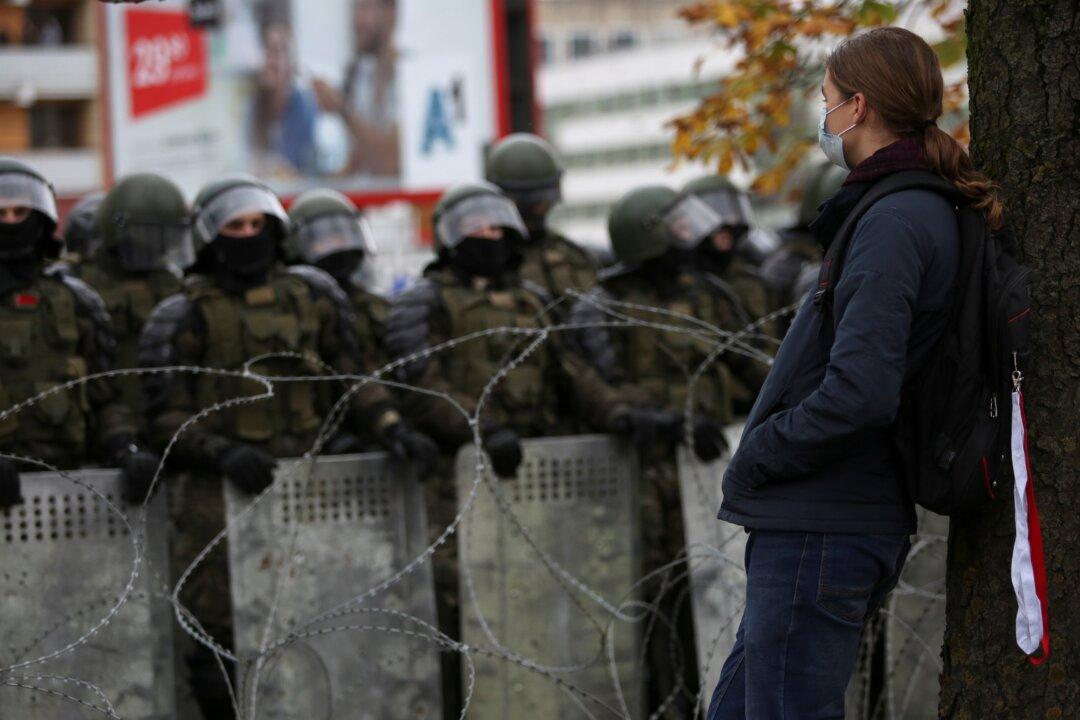KYIV/MOSCOW—Belarusian police used stun grenades against protesters on Oct. 25 as tens of thousands of people headed toward Independence Palace in the capital, Minsk, demanding that leader Alexander Lukashenko resign.
Protesters carrying the red-and-white flags of the Belarusian opposition movement scattered as loud bangs and flashes lit up the city’s streets after nightfall, videos showed.





